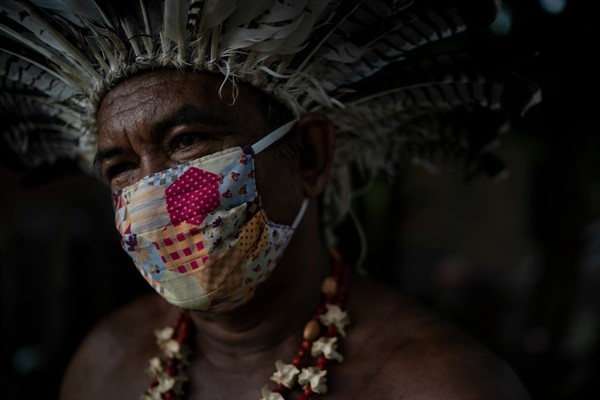Far from being a “great equalizer,” the coronavirus pandemic “is reinforcing the brutal inequality that separates the world’s privileged and marginalized communities,” WPR columnist Stewart Patrick wrote recently. Consider the indigenous people of South America, whose populations were decimated long ago by the arrival of European colonizers who introduced new and deadly pathogens to the continent. In an email interview with WPR, Rosaleen Howard, chair of Hispanic Studies at Newcastle University, explains how centuries of exploitation and neglect have left these indigenous communities especially vulnerable to COVID-19.
World Politics Review: What kinds of unique challenges are indigenous communities in South America facing as they deal with the spread of the coronavirus?
Rosaleen Howard: Indigenous populations in South America have been historically neglected by public services and government assistance, disadvantaged by poverty and low levels of education. Many indigenous people tend to be geographically isolated, far away from health care facilities. While the isolation of some indigenous communities has proved an advantage in preventing transmission of the virus, this is a short-lived illusion, as the spread of COVID-19 is very difficult to contain once it reaches the villages and towns where indigneous people live. Many of these places lack reliable health care services and a secure food supply, even in the best of times.

